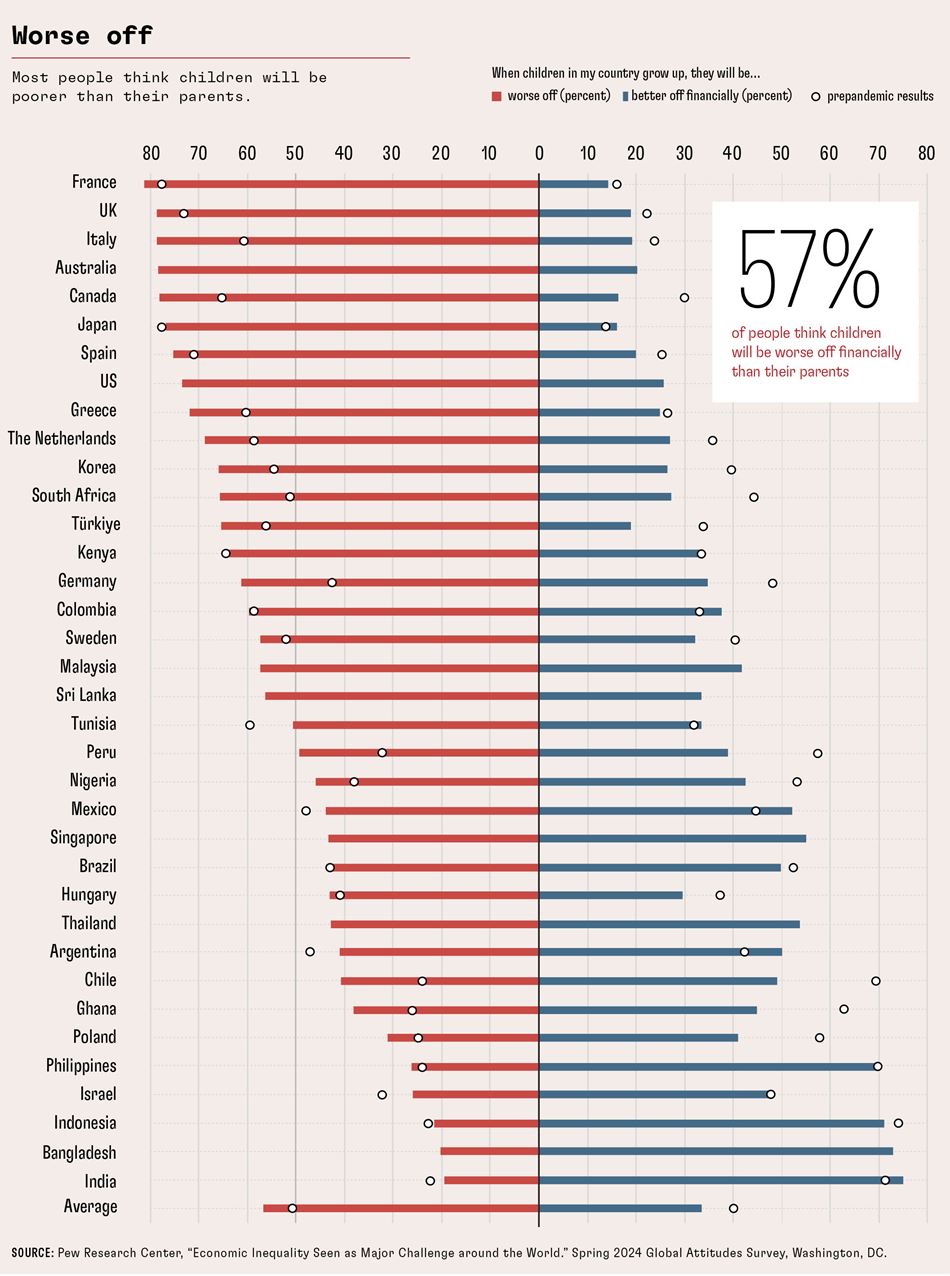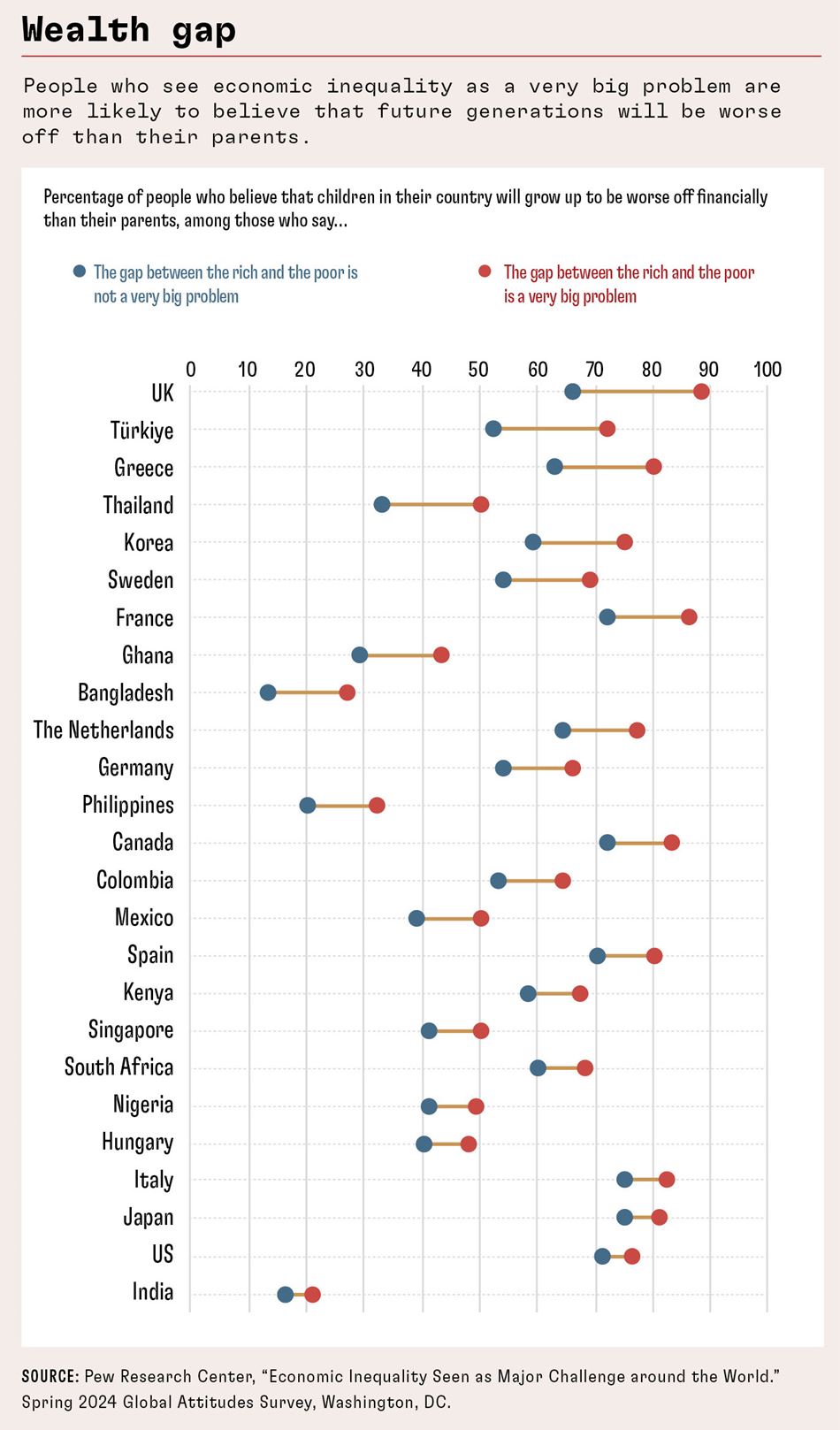People in many countries are losing hope that children will be better off
People are pessimistic about the financial future of the next generation, according to a recent survey by the Pew Research Center in Washington, DC. And that pessimism clearly reflects perceptions of economic inequality, the survey of 36 countries shows.
Most say children will be worse off than their parents. A median of 57 percent of respondents share this view. Concern is especially high in advanced economies, including Canada and the United States and many European nations. “This pessimistic view about the economic future is shared by younger and older adults alike, as well as by people with higher and lower incomes,” Pew says.
Pessimism has grown since the pandemic. In 15 out of 31 countries, more people say children will be worse off, compared with surveys before COVID-19. For example, the share of Germans who think children will be poorer than their parents has increased since 2019—from 42 percent then to 61 percent today.
But some of Asia’s fast-growing developing economies—including India, Bangladesh, Indonesia, and the Philippines—are more optimistic. At least 70 percent of respondents there say children will be better off.
Pew links pessimism to perceptions of economic inequality. “In most countries, people who consider the gap between the rich and the poor to be a very big problem are especially pessimistic about how children will fare financially when they grow up,” researchers said. In the UK, for instance, 88 percent of respondents who say the gap between rich and poor is a very big problem also think children will be worse off. Only 66 percent say children will be worse off among those who believe the wealth gap is not a very big problem.
Opinions expressed in articles and other materials are those of the authors; they do not necessarily reflect IMF policy.











